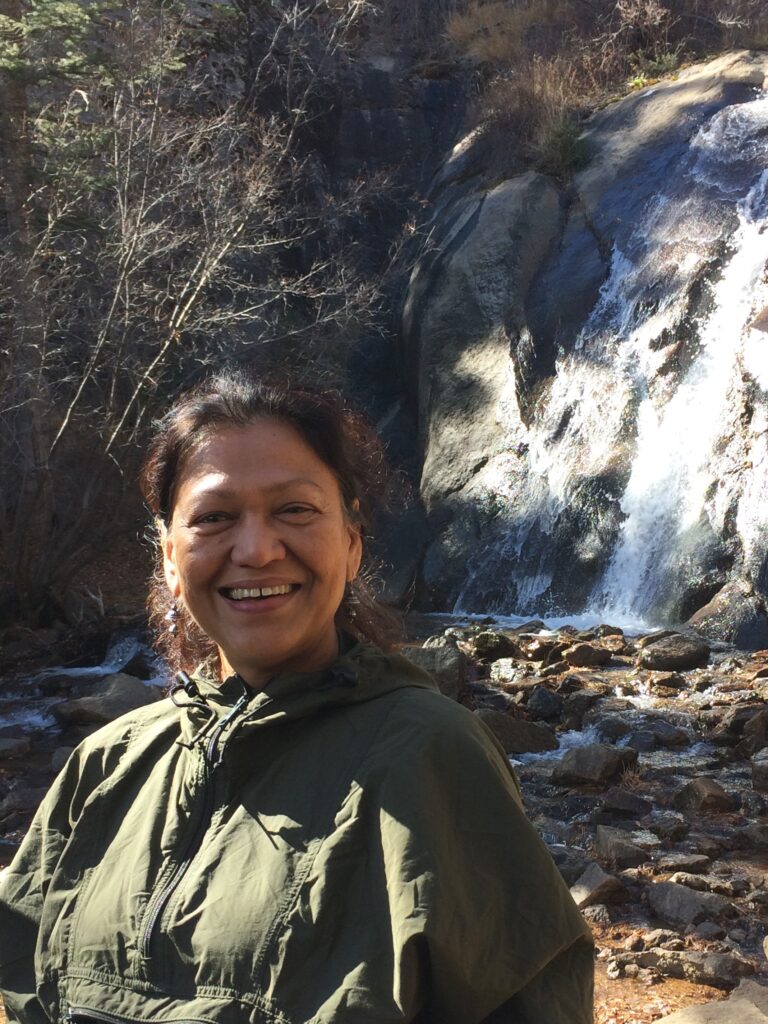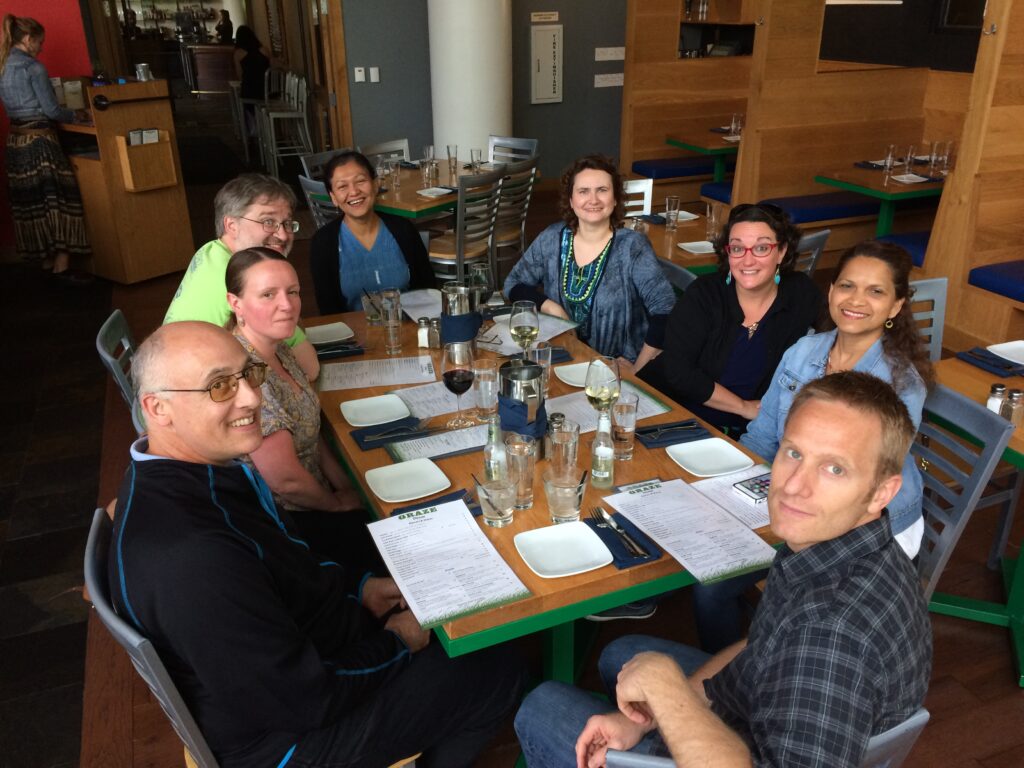University of Colorado Colorado Springs
Professor of Economics
Wisconsin Teaching Fellow (UW-Parkside), 2015-16
I was a Wisconsin Teaching Scholar in 2015 -16 from UW-Parkside. By then, I had already taught for 25 years and had been promoted to full professor. However, I had never felt that my teaching was up to par. Being in an economics department meant teaching bread and butter classes for the College of Business and theory and elective classes to a limited number of majors, who could cope with our offerings, which were mostly applied math. Quantitative reasoning was thematic throughout the classes, and it seemed we competed for rigor, meaning having more algebra and graphs, among ourselves in the department. This, of course, drove away students who didn’t want to draw graphs or solve equations to represent every possible idea.
Economics tends to have predominantly male students and represents the racial demographics of our country, leaning more towards those white students, and students who were both “nerdy” and self-assured. I figured that they could not relate to me as well as to my American born colleagues who were of similar demographic. In my very first year of teaching, one student wrote in his course evaluations comments “what can I possibly learn from someone from Bangladesh?” That was when I realized that interacting with my students was going to create a new field of acculturation, the same way that so many institutions were for me since I came to the US as an international student in the late 1970s–the same way that it has continued over the decades, and will likely go on till I pass.
I fussed–what was causing me to not have the same popularity as my colleagues? There was a question on the evaluations that asked if the instructor was explaining things clearly. Turns out that I scored low on this consistently. What were these “things,” I asked myself? I assumed they were concepts; we economists are quite attached to the notion that our theories can be complex. What was clarity? Something I didn’t have – clearly! It bothered me very much that this was happening because, as you can imagine, it had laid the foundation for my shortcoming as a teacher. It would have been fine if my campus had a research orientation. Except for a few departments in science, however, research was not the focus on our campus, and this “problem” with my teaching became something I continued to grapple with – by going to teaching conferences, joining teaching workshops, talking to colleagues outside the department and letting them all know I wanted to improve my teaching.
Of course, I now know and see that was not particularly clever on my part. Who talks about their one Achilles’ heel continually? It turned out that I was establishing myself as a poor teacher through my own persistence on not being able to score the same points on course evaluations as my white, male colleagues. It took me a while to realize that other women, especially non-native-born women, received similar comments but were not advertising them in the same fashion. Mostly I realized much later, quite recently, that I was being highly competitive and irritated that I was not rated the best at teaching while my research and service flourished and received awards.
Frankly, I have always loved teaching – I enjoyed designing courses, trying out new methods, chatting with my students, and had a nice following of good students who took almost every class I taught. But none of this deterred me from persisting on those evaluations – particularly the clarity question.

Farida Khan with WTFS Cohort members
By the time I became a Wisconsin Teaching Scholar, I did not speak about the clarity question in public and silently blamed the discipline. At the teaching conferences, I learned that the orientation of teachers differed: they all had their own styles, the responses of students also varied, and not everyone was a droid of the same specification.
At the same time, I had very good reception (and evaluations!) in my courses in International Studies and realized at the teaching workshops that I should draw on my experiences from those. As a Wisconsin Teaching Scholar, I had decided to do a project on how learning can be enhanced by current events and collected data from my own courses to look at how the teaching of fiscal policy was more successful during an election year. My marker of success was how well students did on questions on fiscal policy on the final exam.
What was freeing about the conversations we had during my time as a teaching fellow is that none of it was punitive and agenda driven – it was not focused on getting better “ratings” from students but on innovating, collaborative learning, and engaging students.
The same year I was a teaching scholar, I interviewed for jobs elsewhere. After 25 years of being at UW Parkside, the colleges had reorganized in a way that did not allow me to teach for the international studies program any longer. I was hired as a chair at University of Colorado Colorado Springs, and took the position of an Associate Professor. I quickly went through the promotion process three years after I joined, and I was able to get back to my research when I finished my chair contract.
I tried out my lessons from the Wisconsin Teaching Fellows and Scholar program after I moved to Colorado. One thing I loved about my new department was the large slate of electives, advanced theory classes, and the emphasis on writing and reading beyond the textbook. The large numbers of majors and faculty created an environment of non-judgmental teaching and learning. I feel that I have flourished as a teacher in the new department, and I have not felt the need to go outside it (to international studies) for relief as I did before. We still have mostly male and white students and colleagues but that has not been a problem in an atmosphere of general congeniality. I’ve taught the senior seminar course since I’ve come, guiding students through their senior theses, using the practice I developed in international studies. Unexpectedly, my course evaluations are rarely a problem, and students have repeatedly expressed a trust in my care of their learning.
I expect that I will continue to teach full time for a few more years. Everything I learned in Wisconsin, including the programs, speakers, and faculty at OPID’s Faculty College and Spring Conference has helped me grow as a person and given me the necessary tools to have patience with my students, rise to their demand, and, most of all, have an affection for them that hones in on nurture and compassion.
Biography:
Farida Khan is Professor of Economics at University of Colorado Colorado Springs. She was a Professor of Economics at UW-Parkside and a Wisconsin Teaching Scholar in 2015-16.
She has taught in primarily undergraduate programs, except for some classes for MBA students in the business school at UW-Parkside. Her fields are economic development and international trade, and these are among the classes that she teaches. Her research takes an interdisciplinary approach and embraces concepts and approaches that influence society and economics. She is the co-editor of the Journal of Bangladesh Studies and President Elect of the Association of Social Economics in 2025. Her recent work has been in labor economics and environmental issues as they affect indigenous peoples in South Asia.
